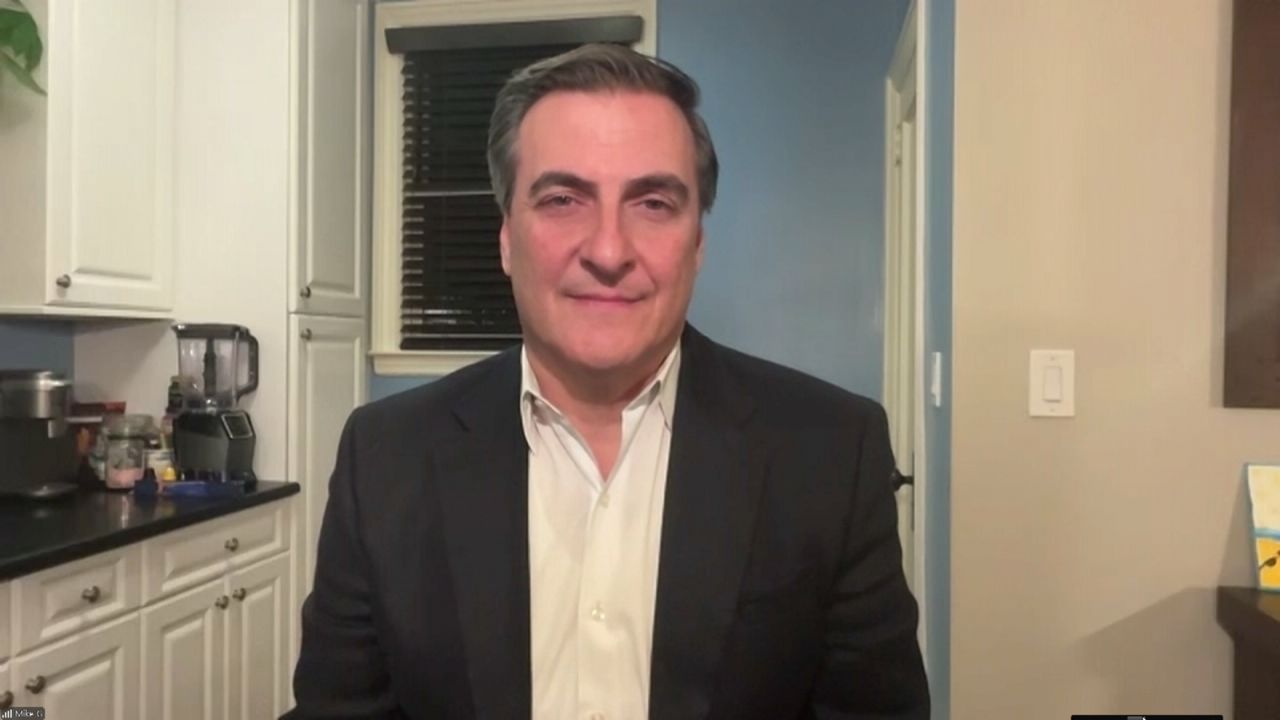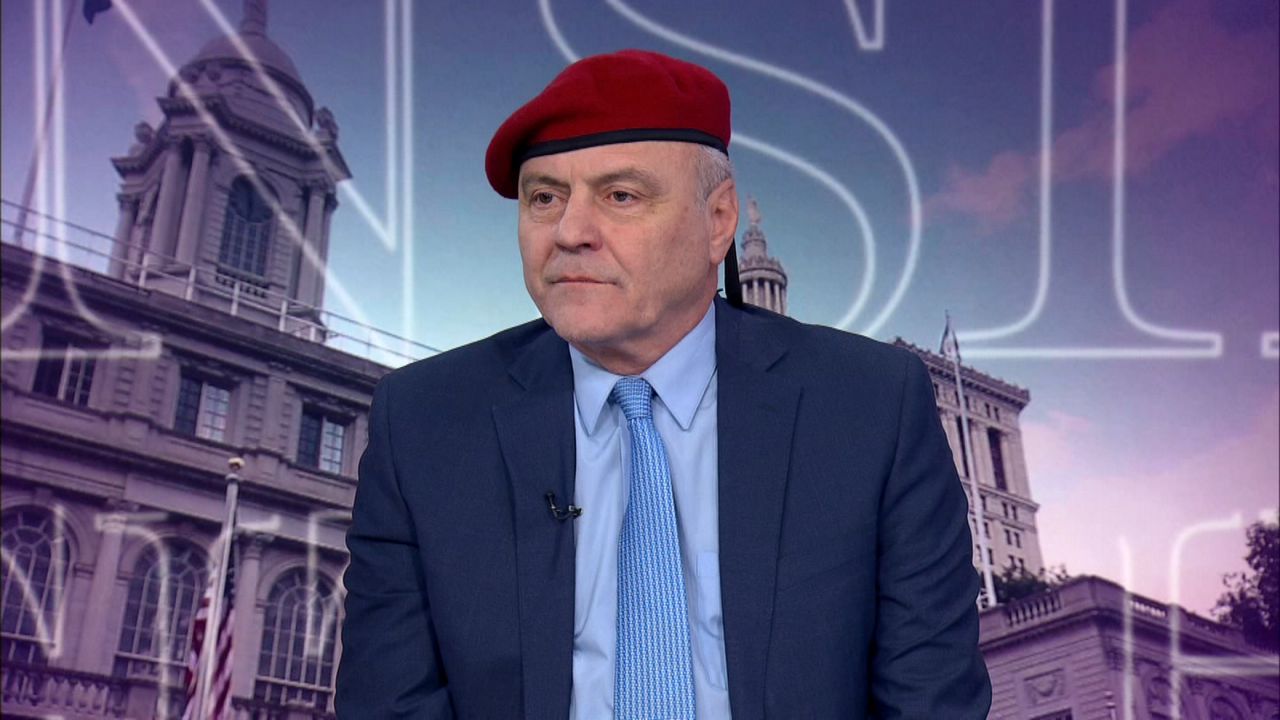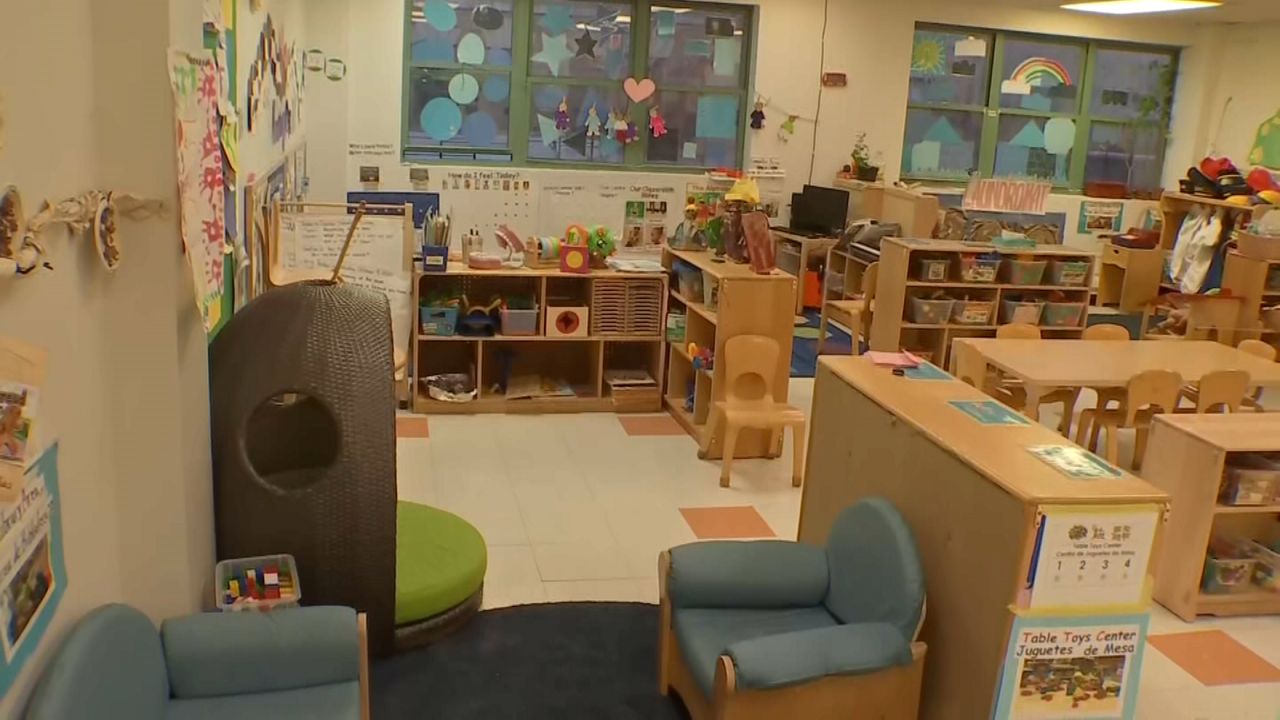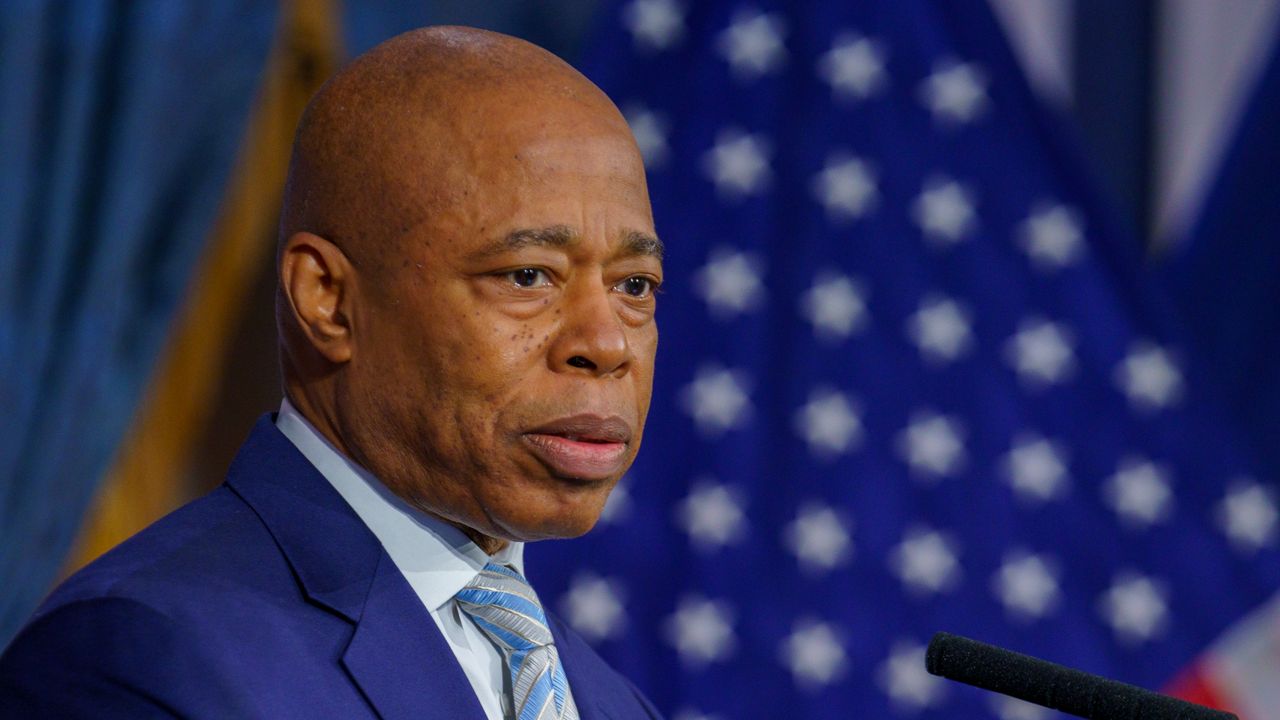It's been a long road for Oralis Daniela Narvarte, who came to New York City from Venezuela four months ago.
Narvarte traveled hundreds of miles, often on foot during long stretches of her journey.
Now, she spends her time giving back to the city she calls home, as one of about 20 volunteers — all recently arrived migrants — who help out every Saturday at a donation event organized by Aid for AIDS on the Lower East Side.
The organization, which provides HIV/AIDS medication to people in Latin American countries, pivoted to helping migrants last year. The event usually serves about 400 people every week, but has also served crowds of up to 1,000.
“I came here because it is very important to help others who have arrived, just like I arrived,” she said in Spanish. “It's a great opportunity to teach them how we can help them with clothes, food. Because I experienced the same situation. I also lived this, and I like to help others.”
Organizers said the event is an important first stop for the most recent arrivals to the city.
“The majority of the individuals that have come into New York City have literally walked here from South America, so they're not prepared for winter,” said Tiffany Kearney, director of development at Aid for AIDS. “They don't have coats, they don't have boots, they don't have hats — all the things that we need to just simply keep warm.”
All of the volunteers, like Narvarte, first attended the event as recipients not long ago.
Since April, more than 42,000 migrants have come to New York City, according to officials — all of whom are looking to work. But the job search is often frustrating, as it can take up to a year to get proper work documentation when applying for asylum.
When Mayor Eric Adams in October declared a migrant-related state of emergency in the city, he called on the federal government to pass legislation that would expedite the process for asylum seekers to obtain legal work documents. Those changes have yet to take place.
At the donation event, asylum seekers are able to make a small stipend from the nonprofit while they look for more sustainable work options. The event also helps with their mental health, they said.
“Being a volunteer helps you clear your mind of any problems you might be facing, of all the trauma migrants go through that stays with us,” Eduardo Espinoza, who worked as a tattoo artist in Venezuela, said in Spanish.
Jorge Ramos, another volunteer, worked as a barber back home in Venezuela. He’s looking for work now, but in the meantime, he gives free haircuts at Aid for AIDS events. Considering the arduous journey that the migrants have taken, it can be easy to underestimate the power that a simple haircut can provide, he said.
“While cutting their hair, they will tell me, ‘I spent days without eating, I got sick along the way, look how I look like, I need to get a job soon,’ and that’s something beautiful, to see how a person can advance in their life, and incorporate themselves in this city and receive that help,” Ramos said in Spanish.
The organizers hope that New Yorkers will realize that these newly arrived migrants want to give back to the fabric of the city like every other previous wave of immigrants.
“This is a testimonial that the people that are here in New York, is because they are running out of horrible situations in life in their native countries, but they are here to help,” said Jesús Aguais, the founder of Aid for AIDS. “They want to be integrated. They want to work. We have incredible people that all they want is an opportunity.”
And for some, like Narvarte, working with the nonprofit has informed the kind of work she hopes to do moving forward.
“[My ideal job will be] something like this, helping people, because I like doing this,” she said.









